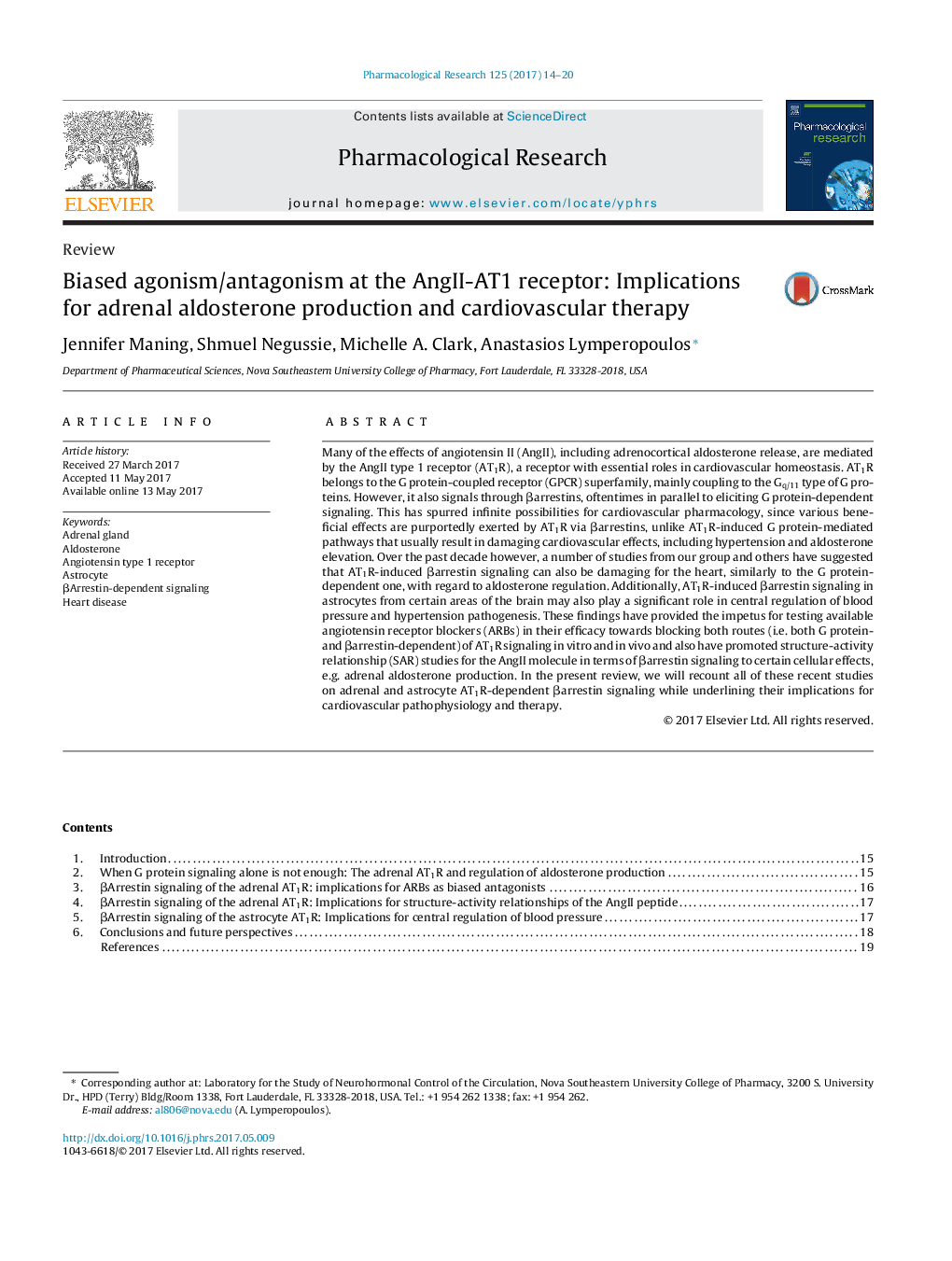| کد مقاله | کد نشریه | سال انتشار | مقاله انگلیسی | نسخه تمام متن |
|---|---|---|---|---|
| 5557200 | 1403154 | 2017 | 7 صفحه PDF | دانلود رایگان |

Many of the effects of angiotensin II (AngII), including adrenocortical aldosterone release, are mediated by the AngII type 1 receptor (AT1R), a receptor with essential roles in cardiovascular homeostasis. AT1R belongs to the G protein-coupled receptor (GPCR) superfamily, mainly coupling to the Gq/11 type of G proteins. However, it also signals through βarrestins, oftentimes in parallel to eliciting G protein-dependent signaling. This has spurred infinite possibilities for cardiovascular pharmacology, since various beneficial effects are purportedly exerted by AT1R via βarrestins, unlike AT1R-induced G protein-mediated pathways that usually result in damaging cardiovascular effects, including hypertension and aldosterone elevation. Over the past decade however, a number of studies from our group and others have suggested that AT1R-induced βarrestin signaling can also be damaging for the heart, similarly to the G protein-dependent one, with regard to aldosterone regulation. Additionally, AT1R-induced βarrestin signaling in astrocytes from certain areas of the brain may also play a significant role in central regulation of blood pressure and hypertension pathogenesis. These findings have provided the impetus for testing available angiotensin receptor blockers (ARBs) in their efficacy towards blocking both routes (i.e. both G protein- and βarrestin-dependent) of AT1R signaling in vitro and in vivo and also have promoted structure-activity relationship (SAR) studies for the AngII molecule in terms of βarrestin signaling to certain cellular effects, e.g. adrenal aldosterone production. In the present review, we will recount all of these recent studies on adrenal and astrocyte AT1R-dependent βarrestin signaling while underlining their implications for cardiovascular pathophysiology and therapy.
Role of adrenal and brain astrocyte AT1R-dependent βarrestin signaling in cardiovascular disease: Possibilities for therapeutic targeting.Figure optionsDownload high-quality image (133 K)Download as PowerPoint slide
Journal: Pharmacological Research - Volume 125, Part A, November 2017, Pages 14–20